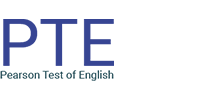
The International English Language Testing System or popularly known as IELTS is one of the most recognized English Proficiency tests for higher learning & global relocation purposes.
The test is acknowledged in nearly 10,000 organizations globally, including some of the top universities of Australia, Canada, New Zealand, and the United Kingdom.
One can appear for IELTS test as many times as required. It is conducted 4 -5 times every month. The test score is valid for 2 years.
IELTS Exam Structure
| Reading Module | 3 Sections, Time Allotted - 20 mins. for each section. |
| Listening Module | 4 Sections, Time Allotted - 30 mins. |
| Speaking Module | Time Allotted - 11 to 15 mins |
| Writing Module | 2 Sections, Time Allotted - 20 mins for 1 section and 40 mins for other section |
| Total Time | 2 hours, 45 minutes |
| Nature of Exam | Paper Based Test (PBT) & Computer Based Test (CBT) |
| Total Scores | IELTS is out of 9.0 bands |
| To get in IELTS | For Masters studies, an overall score of minimum 6.5 out of 9 is required with band 6.0 minimum in each module. |
| Test Fees | INR 16,250 (as of September 2023) |
| Score Validity | 2 Years |
| Nature of Exam | Paper Based Test (PBT) & Computer Based Test (CBT) |
| Total Scores | IELTS is out of 9.0 bands |
| To get in IELTS | For Masters studies, an overall score of minimum 6.5 out of 9 is required with band 6.0 minimum in each module. |
| Test Fees | INR 16,250 (as of September 2023) |
| Score Validity | 2 Years |

Pearson Test of English Academic or PTE is an English language test that assesses the candidate’s English language competency. Students who wish to study abroad or settle in the UK, Australia, the USA, and Canada, must qualify for this computer-based test.
PTE stands out from the rest of the English Proficiency test for many reasons. One being it is completely computerized. Naturally, the results are quicker and faster (typically within 2 business days), making the test apt for the students who are in a hurry. The test analyzes the candidates’ Reading, Writing, Listening, and Speaking skills by combining at least 2 skills, like reading and speaking or listening and reading.
PTE Exam Structure
| Personal Introduction | An ungraded 1-minute session for the candidate to record a video sample of his/her academic profile. |
| Speaking & Writing Section (54 -67 minutes) | Seven different question types to test your speaking and writing skills |
| Reading Section (29 - 30 minutes) | Five different question types to test your ability to read academic English |
| Listening Section (30 - 43 minutes) | Eight different question types to test your listening skills using audio & video clips |
| Total Time | 2 hours, 45 minutes |
| Nature of Exam | Computer Based Test Edition (Online in a Test Centre)/ PTE Academic Online (Online at home) |
| Total Scores | PTE score is out of 90 points |
| PTE Test Fee | INR 15,900 |
| Score Validity | 2 Years |
| Total Time | 2 hours, 45 minutes |
| Nature of Exam | Computer Based Test Edition (Online in a Test Centre)/ PTE Academic Online (Online at home) |
| Total Scores | PTE score is out of 90 points |
| PTE Test Fee | INR 15,900 |
| Score Validity | 2 Years |

TOEFL (Test of English as a Foreign Language) is an English language proficiency test that is accepted by more than 11,000 universities, professional bodies, immigration authorities, scholarship agencies & institutions across 150 countries worldwide. It is also the most widely accepted English language test in the world that is administered in over 4500 test centres in over 165+ countries.
TOEFL iBT is administered by non-profit organization ETS (Educational Testing Service) and measures the ability of non-native speakers of English to use and understand English as it is spoken, written and listened to in college and university settings.
iBT stands for Internet Based Test, the most common form of TOEFL conducted worldwide, and students can appear for TOEFL test any number of times not more than once in a 12-day period
TOEFL Exam Structure
| Listening Section (41 – 57 minutes) | 3 - 4 lectures, 6 questions per lecture 2 – 3 conversations, 5 questions per conversation |
| Reading Section (54 –72 minutes) | 3 - 4 reading passages, 700 words long 10 questions per passage |
| Writing Section (50 minutes) | 2 tasks of writing essay responses based on reading and listening |
| Speaking (17 minutes) | 1 independent and 3 integrated speaking tasks about a familiar topic and discussing material that you read & listened to |
| Total Time | 2 hours |
| Nature of Exam | 1. Internet Based Test (iBT) 2. TOEFL iBT® Special Home Edition 3. TOEFL Essentials |
| Total Scores | TOEFL scores are out of 120 points |
| TOEFL Test Fee | USD 195 |
| Score Validity | 2 Years |
| Total Time | 2 hours |
| Nature of Exam | 1. Internet Based Test (iBT) 2. TOEFL iBT® Special Home Edition 3. TOEFL Essentials |
| Total Scores | TOEFL scores are out of 120 points |
| TOEFL Test Fee | USD 195 |
| Score Validity | 2 Years |


